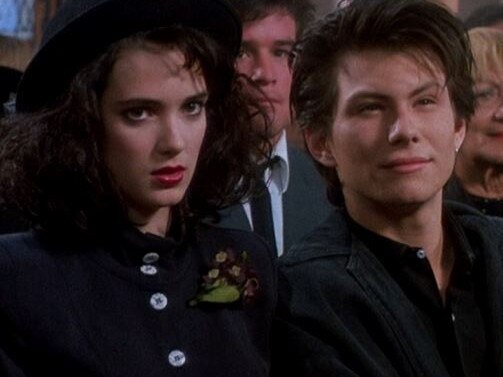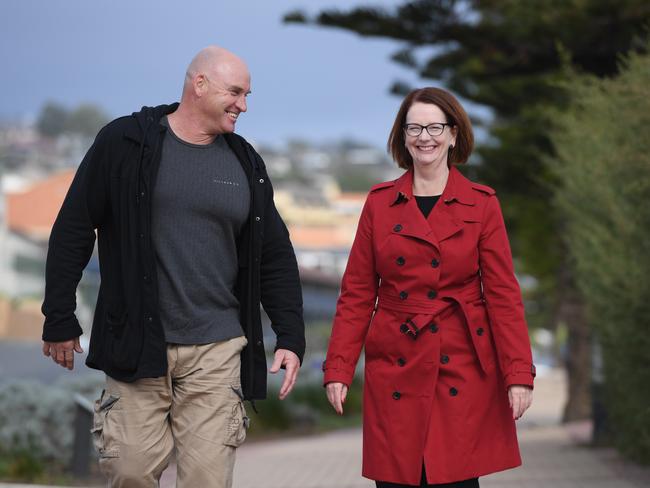David Penberthy: Why we all need a little help from our friends
The sad death of Danny Frawley is a tragic reminder of just how easy it is for men to slip away and succumb to their demons — but there are tactics to help someone know they are not alone, writes David Penberthy.
Rendezview
Don't miss out on the headlines from Rendezview. Followed categories will be added to My News.
In the same way that murderers are invariably described by their neighbours as quiet people who kept to themselves, a similarly mystified form of words is used to describe the many thousands of good people who have silently suffered from depression but been unable to endure the disease.
Whenever someone is lost to depression — and they are overwhelmingly male, with the rate of suicide being more than three times higher for men than women both in Australia and in almost every country in the world — their loved ones tend to stand around looking at each other in grief-stricken disbelief.
The form of words we use to describe their passing is that they seemed so happy and were always laughing, or that they seemed completely well-adjusted and together, as if they were bulletproof.
MORE FROM DAVID PENBERTHY: Why the world laughs at lefties
There have been so many deaths that fit these two assessments that perhaps it’s time for a rethink. Perhaps we should regard being externally “always happy” or the state of presenting yourself as bulletproof as signs that our mates might actually need some help.
In the terrific black comedy Heathers, Winona Ryder’s character Heather makes the excellent observation that if you were happy every day of your life you wouldn’t be a human being, you’d be a game show host.

For all the talk about men getting in touch with their emotions and being honest about how they really feel, there is still a huge crisis in male behaviour where so many blokes feel duty bound to be the life of the party and laugh their way through life, or maintain a permanently stoic tough guy persona that belies whatever pressures are bubbling away beneath.
The tragic death of the seemingly happy-go-lucky Danny Frawley underscored that fact. So too did a remarkable interview given this week by the former captain of my local football club, Zane Kirkwood, who is one of those relentless midfielders who amasses dozens of hard disposals every week, and looks to the outside world like one of the toughest blokes going around.
Yet Kirkwood revealed this week the sole reason he walked away from the captaincy of Sturt Football Club is that for the past few years he has often been so paralysed by depression and anxiety he has been unable to leave the house, even to go to the local shops, and that he had even suffered panic attacks during matches when he was on the bench and felt like the world was caving in around him.
MORE FROM DAVID PENBERTHY: Beaches belong to us all, not just the rich
It is a great thing blokes like Kirkwood are having the courage to come forward and share their stories so that other men don’t continue to suffer in silence.
The big challenge for those of us who, luckily, have not been affected by this disease is how do we become better at identifying the signs in our friends that they’re struggling.

Port Adelaide football legend Scott Hodges revealed his battle with depression in his biography which I wrote with him after we became mates through our sons going to the same primary school.
In his book, Scott makes the point that even when you try to find out if one of your mates is depressed, usually over a catch-up that involves beer, the depressed person will still avoid being honest because they don’t want to look like they’re spoiling a good catch-up by being negative or self-absorbed.
Scott’s theory, and it’s one he has worked on with his old teammate Tim Ginever, is that the best way to try to stay on top of how your mates are travelling is to keep pestering them politely when they fall off the radar.
Tragically, it’s a tactic they have had to devise after several members of their legendary playing group from the 1990s became afflicted by the disease, with a few of them even taking their own lives.

“You hear it all the time,” Scott writes. “When people are gone, everyone stands around scratching their heads and saying: ‘None of us knew’. Even psychologists struggle to answer that question.
“What I concluded is this: everyone has mates. Mates will do anything they can to support each other. You bend over backwards for your mates. I want people to think about their mates. Have you seen them lately? Have you spoken to them lately?
MORE FROM RENDEZVIEW: “RU OK” is good but not nearly enough
“If you have a group of mates and you have a regular catch-up, be it a weekly arvo at the pub or a pissy dinner every three months or so, has one of your mates suddenly started not coming and giving you excuses about why?
“Obviously there are times when people get busy. You might have a mate who is doing a reno, or tied up with a promotion, or looking after his pregnant wife or something, and all that’s fine.
“But there are other times when blokes just become isolated and withdrawn and pull back from all their socialising because they are not well and they don’t want to talk about it. If you haven’t seen one of your close mates for three to six months, and he hasn’t given you a proper reason why, alarm bells should be ringing.”
The lesson from the past sad fortnight should be phone a friend. Phone a friend, and don’t necessarily take yes for an answer when you ask if things are tracking alright.
For help with emotional difficulties, contact Lifeline on 13 11 14 or www.lifeline.org.au
For help with depression, contact Beyond Blue on 1300 224 636 or at www.beyondblue.org.au

